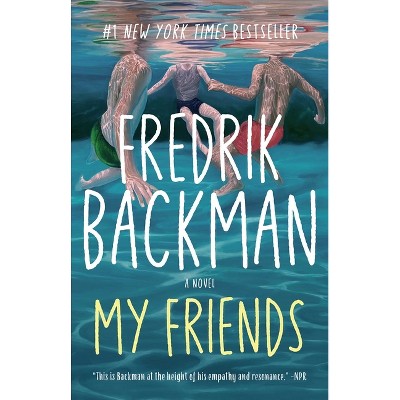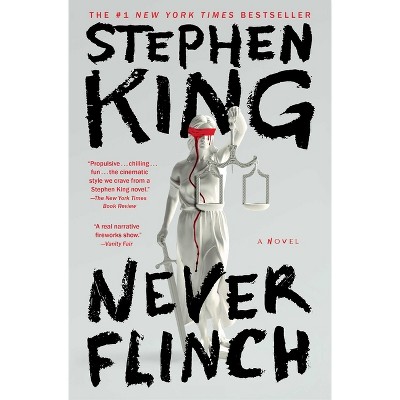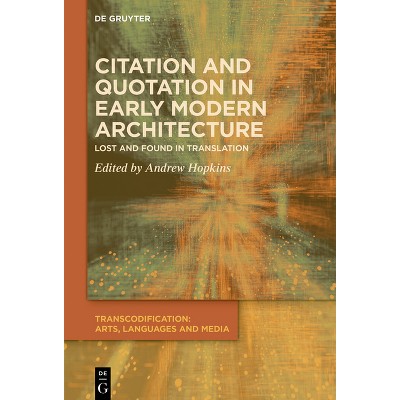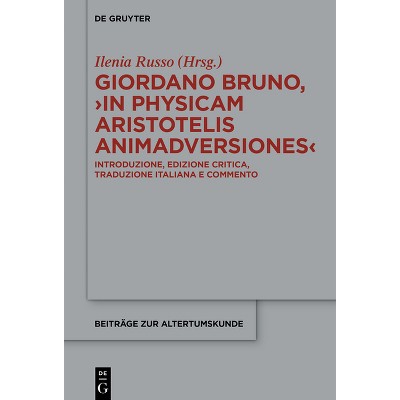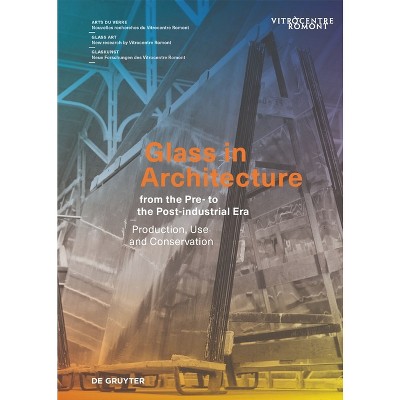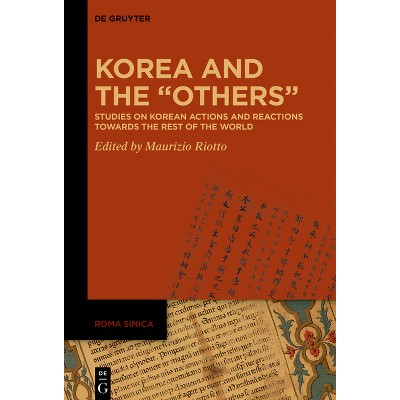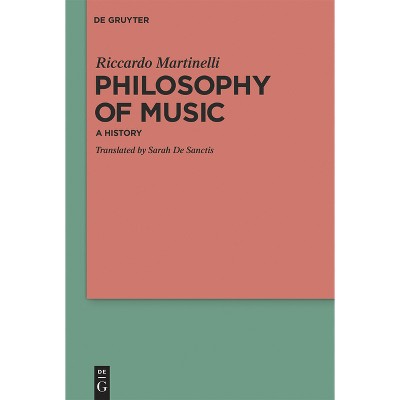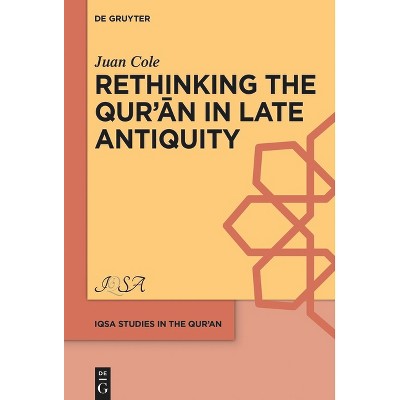Sponsored

Rethinking Orality III - (Transcodification: Arts, Languages and Media) by Maurizio Bettini & Manuela Giordano & Riccardo Palmisciano (Hardcover)
Pre-order
Sponsored
About this item
Highlights
- The Department of Human Studies of the University of L'Aquila has been awarded as one among the "Department of Excellence" at national level (2018-2022) by the Italian Ministry of Education, University and Research.
- About the Author: A century after Parry's groundbreaking studies and outset of "Oral Theory", new hermeneutics have come to the fore and research on oral and written modes of communication has adopted an interdisciplinary approach, producing powerful insights and paradigms by making the most from anthropology, comparative studies, and from memory studies.
- 270 Pages
- Literary Criticism, Ancient & Classical
- Series Name: Transcodification: Arts, Languages and Media
Description
About the Book
The series explores the complexity and the interconnections of arts and languages by merging, comparing and contrasting themes from different sources, methodologies or fields of studies. Its main results derive from the "Arts, Languages, and Media: Translation and Transcodification" project but it is also open to monographs and edited volumes arisen from different contexts and projects.Book Synopsis
The Department of Human Studies of the University of L'Aquila has been awarded as one among the "Department of Excellence" at national level (2018-2022) by the Italian Ministry of Education, University and Research. The award comes with generous funding to carry out a research project on "Arts, Languages, and Media: Translation and Transcodification". Among the aims to be achieved within the framework of the project is the establishment of the book series, Transcodification: Arts, Languages and Media, devoted to the pivotal theoretical concept of the research, namely transcodification. The rationale, and also the novelty, of the series is that of constituting a methodologically interconnected space allowing scholars from different fields in the humanities to reflect on a specific, yet inherently interdisciplinary concept through a shared framework.
The main methodological and theoretical questions revolving around transcodification have been investigated in conferences, seminars, summer and winter schools through the discussion of topics ranging from the birth of Epos/epic poetry to translations studies, from contemporary theatre to the many forms of the novel, from figurative arts in the Middle Age to new media, from concepts in both philosophy and science to urban planning and design. The project involves scholars in the Department from a very diverse range of fields, including classical studies, comparative literature, linguistics, visual and performative arts, philosophy. These scholars will be both authors and editors for the series, and together with their respective academic communities will also be the expected readers of the books we are planning. The book series is managed and coordinated by the Center for Transcodification, established at the Department of Human Studies, that takes care of the selection of the proposals, the refereeing process and the delivering of completed manuscripts. The Center will continue its activities beyond the natural ending of the funded project, and it is working to secure future funding for it.
About the Author
A century after Parry's groundbreaking studies and outset of "Oral Theory", new hermeneutics have come to the fore and research on oral and written modes of communication has adopted an interdisciplinary approach, producing powerful insights and paradigms by making the most from anthropology, comparative studies, and from memory studies. In keeping with this trend, the present volume builds upon an innovative approach to orality and its interplay with literacy that calls into the debate, among others, the cognitive turn and neuroscience which in the last thirty years have produced a step-change in our understanding of human mind, communication, and transmission of knowledge. This volume shows both the relevance and the heuristic potential of these approaches to rethinking orality, and host a dialogue with cognitive sciences (linguistics and neuroscience), anthropology, and complexity theory, with an emphasis on theoretical perspectives, alongside case-studies ranging from Homer and classical Athens to Roman law.
Shipping details
Return details
Trending Book Pre-Orders



